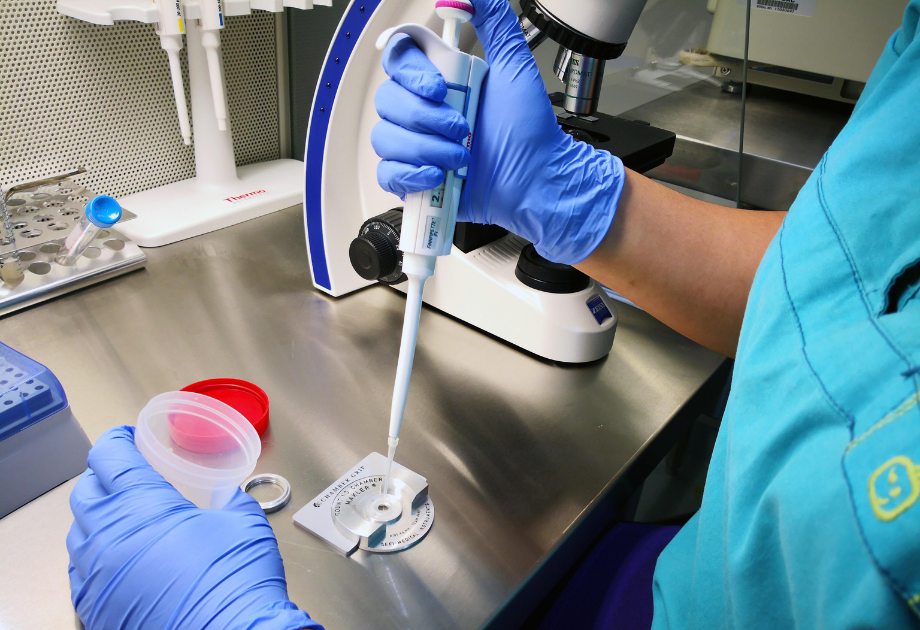Boost Sperm Health and Take Charge of Your Fertility

Fertility conversations often focus on women, but sperm health plays an equally important role—and contributes to nearly 50% of fertility challenges. Despite that, it’s rarely talked about in the same detail.
This blog explains what affects sperm health and how to improve it. Even if you’re not trying to conceive right now, your habits today matter. Sperm quality can improve with the right support—and small changes now can lead to better outcomes later.

Know What You’re Working With: What Healthy Sperm Looks Like
You’ve probably heard about “low sperm count” before, but that’s just one part of the picture. Sperm health is made up of five parts:
- Sperm count: How many sperm are in each sample.
- Motility: How well those sperm move.
- Morphology: How sperm are shaped.
- Volume: The total amount of fluid (semen) you produce.
- DNA integrity: How stable and healthy the genetic material is.
Each one of these factors plays a different role in conception—and they all matter. You could have a high sperm count, but if those sperm don’t swim well or carry damaged DNA, that can still make it harder to conceive.
A semen analysis test looks at all of these factors. The results give you a snapshot of your current reproductive health. And here’s something important to know: sperm take about 72 days to develop. That means if you’re working on improving your fertility, the changes you make today won’t show up in your numbers for at least two to three months. But that also means progress is possible—with a little time and consistency.
Sperm Count, Motility, and Morphology—What Do They Mean?
Let’s break these down in plain terms:
- Count: The more sperm you have, the better your chances of fertilization.
- Motility: Sperm need to swim effectively to reach the egg. Poor movement makes that difficult.
- Morphology: Shape matters. Ideally, sperm should have an oval head and long tail. Irregular forms don’t perform as well.
Each one plays a role—but they’re most effective when working together.
Why DNA Integrity and Volume Also Matter
These two pieces sometimes get overlooked, but they play a big role:
- Volume helps with delivery. If semen volume is too low, it may not carry sperm far enough.
- DNA integrity affects what happens after fertilization. If sperm DNA is damaged or unstable, it can lead to failed implantation or miscarriage—even if fertilization occurs.
While symptoms might not be visible, sperm health can still be affected in ways you wouldn’t notice without testing. A semen analysis gives real insight into what’s going on—and helps guide the next steps if anything’s off.

Take Stock of the Habits That Might Be Working Against You
It’s not always obvious what affects sperm quality. Some of the biggest disruptors are daily habits that don’t seem harmful on the surface. But over time, they can interfere with how to increase sperm count, movement, or DNA quality.
Things that can affect sperm health include:
- Heavy drinking or smoking
- Recreational drug use
- High stress
- Poor sleep quality
- Being overweight
- Lack of physical activity
Hidden Disruptors in Your Day-to-Day Routine
Even without substance use or high stress, some everyday behaviors might be working against you:
- Hot tubs and saunas
- Laptops on your lap
- Phones in your front pocket
- Tight underwear or pants
- Long bike rides
- Exposure to chemicals
When Lifestyle Factors Add Up
You might look at a list like this and think, “Okay, I do a few of those things.” That’s normal. But when these factors pile up—sleep deprivation, stress, alcohol, poor diet—they start to have a real impact. Fortunately, even small changes can help. You don’t have to overhaul everything overnight. Just start by making one adjustment at a time.
Fuel Your Fertility with Smarter Nutrition
The way you eat and hydrate affects hormone levels, sperm production, and the quality of your DNA. If you're wondering how to increase sperm count or maintain sperm health in general, nutrition is a good place to start.
Certain nutrients are especially important:
- Zinc: Supports testosterone and overall sperm development.
- Selenium: Boosts sperm movement and reduces oxidative stress.
- Folate: Helps your cells divide and function properly.
- Vitamin C: Acts as an antioxidant and protects against DNA damage.
- Vitamin D: Linked to hormone balance and sperm quality.
- Omega-3 fatty acids: Improve membrane fluidity, helping sperm swim better.
- CoQ10: Boosts energy in sperm cells, helping motility and morphology.
You can get these nutrients through:
- Leafy greens (for folate and vitamin C)
- Nuts and seeds (for selenium and omega-3s)
- Lean meats or shellfish (for zinc)
- Fatty fish like salmon (for omega-3s and vitamin D)
- Hydration—yes, water helps too
Should You Take Supplements?
Supplements can be helpful, but not all are created equal. Doses, quality, pairings, and timing matter. Some men use fertility-focused multivitamins or antioxidant blends, but it’s always a good idea to check with a specialist first. What helps one person may not be right for another—and testing can guide better decisions.

Get Checked: What to Expect from a Sperm Health Assessment
You don’t have to guess about your fertility. A male fertility test gives clear information about where you stand. If something’s off, you’ll know what needs attention. If everything looks good, you’ll have peace of mind.
The Semen Analysis Process
It’s a straightforward test. You’ll provide a semen sample at a clinic or at home with a secure collection kit. The lab looks at:
- Sperm count
- Motility
- Morphology
- Volume
- Other markers, like pH and white blood cells
At The Fertility Wellness Institute of Ohio, we offer semen analysis with detailed morphology testing to provide a thorough view of your sperm health and help guide next steps.
[What the Results Can Tell You
A semen analysis might reveal the need for additional testing, such as hormone panels or imaging. In some cases, it can even uncover underlying medical issues. If anything concerning shows up in your results, Dr. Chin will let you know if a follow-up with your primary care provider or a specialist is recommended—so you’re not left with unanswered questions

Don’t Wait Until You’re Trying: Build Fertility Wellness Early
There’s a common belief that sperm health can wait. That men are fertile “forever.” But research shows that sperm quality starts to decline with age, and unhealthy habits can compound over time—even in your 20s and 30s.
Why Fertility Planning Isn’t Just for Right Now
Strong fertility doesn’t happen by default. It’s supported by good health habits, early awareness, and a proactive mindset. And taking care of it now means fewer surprises later—especially if you want kids someday.
What You Can Start Doing Today
Here are five things you can do to support sperm health right now:
- Schedule a sperm health screening
- Drink more water—hydration supports semen volume
- Cut back on alcohol and avoid tobacco
- Eat more whole foods, fewer processed snacks
- Track your sleep and aim for at least 7 hours a night
These kinds of changes are also known to support increased seminal fluid volume and health, giving your body the foundation it needs for healthy sperm production.
Start Strong with The Fertility Wellness Institute of Ohio
Sperm health doesn’t change overnight, but it can improve with time, consistency, and the right support. Many of the most common fertility barriers are manageable—and knowing where you stand is a powerful first step.
At The Fertility Wellness Institute of Ohio, we’re here to help you take that step with confidence. Our team offers compassionate, science-backed care tailored to your goals—whether you're trying now, planning ahead, or just looking for clarity.
Connect with us today to schedule a sperm health assessment and take charge of your fertility.

